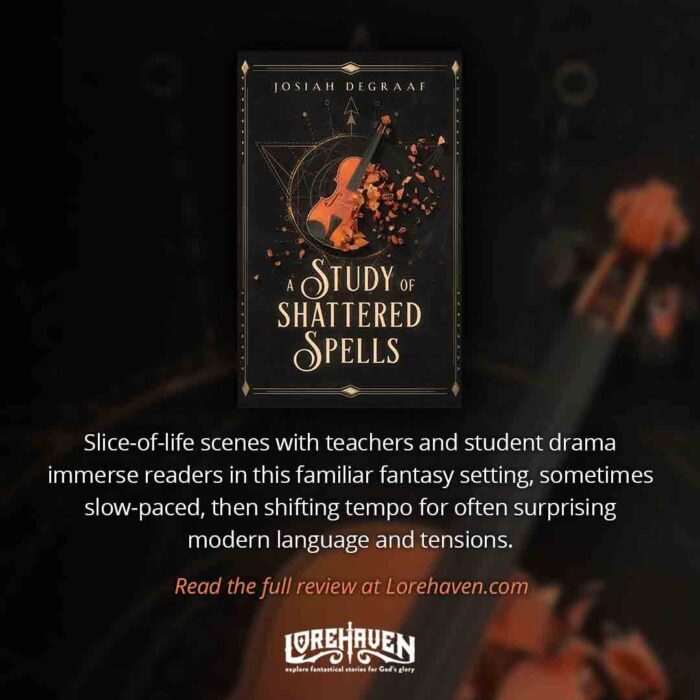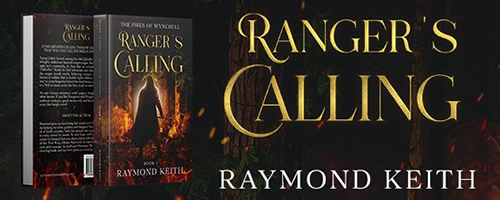‘I’ve Always Loved the Magic at the Margins’
Shawn Smucker says he shares some backstory with his latest hero, Cohen Marah.
They both grew up in country churches. They both had fathers in pastoral ministry.
Yet in Shawn’s novel Light from Distant Stars, Cohen struggles to recall if he tried to kill his father—a former pastor whose sins divided his family and country church.
Whereas Shawn learned to love Jesus’s people thanks in part to his loving father. Shawn’s dad served as an associate pastor at a rural church, which was located on the border of Lancaster County and Chester County in southeastern Pennsylvania.
“In those days, we went to church three times a week,” Shawn recalled.
His family attended every Sunday morning and evening, and on Wednesday nights.
“I loved going to church,” he said. “I had a group of guys—maybe four or five or six other guys—that I grew up with. . . . That just really served to create for me an image of church that I know a lot of people don’t necessarily have these days.
“We were such a tight community,” Shawn said. “My grandparents were actually Amish, and they left before I was born and when my parents were very young.”
Shawn’s ancestors have lived in Pennsylvania for thirteen generations, he said.
“A lot of the creative stuff in my life came also from my church,” Shawn said. “My very first exposure to really good stories came when my Sunday school teacher read The Lion, the Witch and the Wardrobe to us when I was probably seven years old. . . . I had never before heard anything in my life like that. This was amazing.”
These dual themes—the Church’s goodness versus human sin, and conflict between life and death, and light and darkness—are brought to life in Shawn’s novels so far.
Where reality meets fiction
Shawn has worked as a full-time writer and a ghostwriter. He’s spent time in the business world and co-written his aunt’s memoir. Another book project sent him to Istanbul, Turkey, where he spent three weeks meeting with a man dying of cancer.
“It really opened up my eyes to this idea of mortality,” Shawn said.
That man’s story sent Shawn on a creative journey. He had already spent a lifetime since childhood loving great fiction, especially fantasy from many authors, from C. S. Lewis and J. R. R. Tolkien to Susan Cooper and Lloyd Alexander.
After Shawn’s trip to Turkey, he began writing a book intended for younger readers.
That story ended up with the title The Day the Angels Fell. Shawn said it asks the question: “Could it be possible that death is a gift?”
Because he was keeping busy helping other writers create books, Shawn originally self-published the story. He didn’t intend to start his own fiction-authoring career. Then his agent read the book and asked if she could shop it around. Shawn landed a contract with Revell Fiction, and the book’s new version arrived September 2017.
However, Shawn’s young adult titles don’t just follow younger characters. The Day the Angels Fell starts with an elderly man, Samuel.
“I think a lot of the books that I’m working on right now—maybe it’s the age that I’m at, I don’t know—but they definitely encircle themes around death,” Shawn said.
Since then, more readers beyond the book’s original younger audience have found the story. It has won a Christianity Today 2018 book award. A year later, its sequel, The Edge of Over There, won CT’s award of merit in the same category. Writing for CT, reviewer Jennifer Grant remarked, “Smucker nimbly weaves common experiences that teens face—shifting relationships with parents, the desire to become socially active, and the yearning for connection—into this almost dystopian fantasy.”
Where contemporary fiction meets fantasy
Shawn said he wants to keep making contemporary stories with fantastical edges.
“I really enjoy reading and writing stories that could be true, even though they’re fantastical.”
—Shawn Smucker
“As a kid, you wonder if there really are gnomes or fairies, and you think you see them,” he said. “I really enjoy reading and writing stories that could be true, even though they’re fantastical . . . creating something that happens in this real world, but challenges the boundaries between real and magical or fantastical.”
For example, Light from Distant Stars (releasing July 2019) does not start with any fantasy backstory or map of a distant star system. It begins with Cohen Marah, very much a person of our world, staring down at his dying father in a funeral home. Cohen must then reckon with his father’s impending death, and his own childhood brokenness when his father was caught cheating with a Sunday school teacher.
Still, the story gets fantastical as Cohen flashes back to a side quest involving two mysterious children, an escaped arsonist, and a shadow-creature called the Beast.
“I got the idea from mythology—Thanatos and Hypnos,” Shawn explained. “What I was really exploring with this book was the questions of: How accurately do we really remember things from our childhood? And how do these memories that we think we remember impact our very real lives in the present?
“I was trying to play around a little bit with that idea of how Cohen remembers his childhood, and how his memories of that childhood have impacted his relationship with his father,” he said. “And also his faith, his memories of church, his memories of God, that has changed for him, now that he’s older. He’s really struggling to figure out what was true about his childhood faith and what was made up.”
In Light from Distant Stars, fantastical images, like shadow-creatures and magical realism memories, shine light on the wonders of ordinary things, like childhood baseball games, thunderstorms, and family trauma leading to reconciliation.
“I will probably stick to these ideas, at least for a little while,” Shawn said. “I’ve always loved the magic at the margins.”
Where stories meet deeper questions
To be sure, some readers impulsively disregard stories intended for young adult readers, or that seem to be labeled or marketed for Christian audiences. Other book fans, however, might write off either fantasy or non-fantasy as genre choices.
Shawn said he hopes his books can transcend these kinds of stigmas.
“. . . When you set something in the real world and then introduce magical realist elements, some people can get a little bit turned around with that.”
—Shawn Smucker
“When a story is set completely fantastical, I think it is a bit easier to swallow,” he said. “Whereas when you set something in the real world and then introduce magical realist elements, some people can get a little bit turned around with that.
“I’m eager to see what people think of this book, as a more adult experiment.”
After Light from Distant Stars, Shawn plans to return to his two young adult books to finish their storyline as a trilogy. His next book, though, releases summer 2020. And all of them will likely keep exploring those reality-and-fantasy, life-and-death ideas.
“I just feel so intrigued by that whole field of what happens to us at the end of our lives. For me, usually, writing novels is a way to dig deeper into questions.”
—Shawn Smucker
“I don’t feel myself moving away from those anytime soon,” Shawn said. “I’ve had close friends and relatives who’ve passed away in the last couple of years. I just feel so intrigued by that whole field of what happens to us at the end of our lives. For me, usually, writing novels is a way to dig deeper into questions.”
But great stories usually keep on asking such questions, Shawn said. Their fantasy is meant to encourage readers to seek out the answers in the real world.
“I certainly do not want to create a story that attempts to answer deep questions,” Shawn said. “I ask the question. I maybe suggest, ‘Well, would you think about this as a possible answer?’ But I don’t want these novels to become sermons. Ask the question with me, and go on the journey with me.”


































Share your fantastical thoughts.